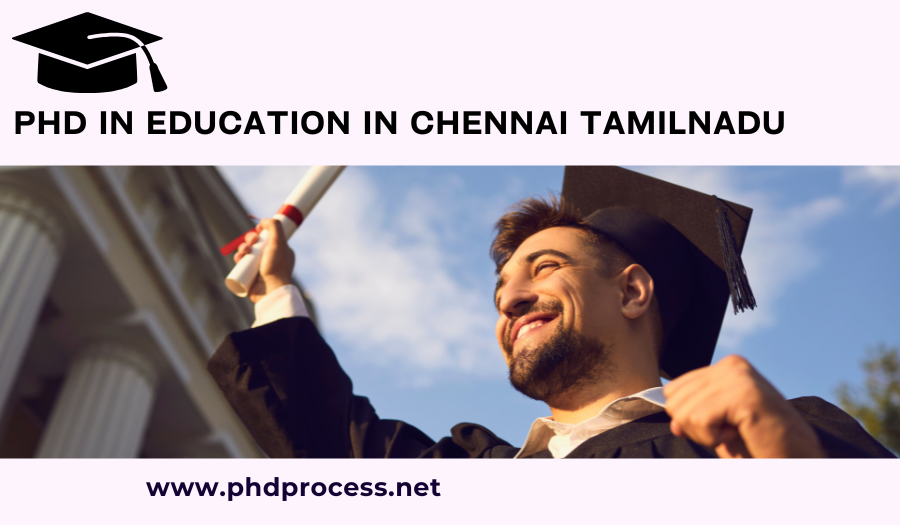For the majority of Indian students, Ph.D. admission is a challenging and rigorous task. And many are not aware of the Ph.D. enrollment process and eligibility criteria. When students know about the UGC NET, GMAT, and other test requirements for Ph.D. admissions, many of them start searching for universities that offer Direct Admission in PhD without entrance Exam NET and M Phil etc. Certain universities in India offer direct admission based on the candidate’s academic merit, research experience, publications, etc.

The Significance of Direct Admission in PhD Programs
Direct admission allows outstanding candidates with proven research potential to pursue a PhD degree. It saves them the time and effort needed to prepare for and take entrance exams. Although some universities provide direct admission to Ph.D. programs without entrance tests, most of them conduct their own for admission. Read more about direct admission in PhD without entrance exam like UGC NET, GMAT and other central and state-level entrance exams. PhD eligibility criteria, application process, funding options, frequently asked questions, and other key details to equip readers with the information needed to apply for and secure direct admission.
Types of PhD Programs
There are two main types of PhD programs in India – full-time and part-time. Full-time PhD is an intensive research program pursued on campus. Part-time PhD allows working professionals to do research with flexibility along with their jobs. Also Read: PhD for Working Professionals in India
Eligibility Criteria
The minimum eligibility for PhD admission is 55% marks or equivalent grade in a postgraduate degree. For engineering disciplines, a valid GATE score is also required in some universities.
Entrance Exams for PhD
- UGC NET
- CSIR NET
- GATE
- GPAT etc
- College Level Entrance
Importance of Entrance Exams
Entrance exams test the research aptitude and subject knowledge of the applicant required for PhD research. Good scores increase the chances of admission and funding.
Benefits of Direct Admission
Direct admission allows outstanding students to avoid time-consuming entrance exam preparation. It gives them an early start for research and access to infrastructure and expert guidance. Major advantages are
- Direct Admission in PhD without entrance Exams allows outstanding candidates to start PhD without entrance exams
- Leading universities offer this route in limited seats across disciplines
- Competitive selection is based on academic excellence and research credentials
Universities Offering Direct Admission in PhD Programs
List of Universities with Direct Admission
Some leading universities offering direct PhD admission are:
- Indian Institutes of Technology (IITs)
- Indian Institutes of Science Education and Research (IISERs)
- Indian Institute of Science (IISc) Bangalore
- Jawaharlal Nehru University (JNU)
- Banaras Hindu University (BHU)
- University of Hyderabad
Contact Us for the List of Universities Providing Direct Admission in PhD Without Entrance Exam & Admission Guidance
Criteria for Direct Admission
Direct admission criteria may include:
- Excellent academic record (First class or equivalent)
- Relevant publications in peer-reviewed journals
- Qualifying in GATE/NET
- Research experience
Specialized Fields Offering Direct Admission
Direct PhD admission is offered in diverse fields like:
- Sciences – Physics, Chemistry, Biology
- Engineering – Computer Science, Electrical, Mechanical
- Medicine and Pharmacy
- Humanities and Social Sciences
Comparison of Universities Offering Direct Admission
| University | Programs Offered | Application Deadline |
|---|---|---|
| IIT Delhi | Engineering, Sciences, Humanities | October-November |
| IISc Bangalore | Sciences, Engineering | May-June |
| JNU | Arts, Social Sciences, Languages | May-June |
| BHU | Wide range of programs | May-July |
Application Process for Direct Admission
Preparing the Application
The application for direct Ph.D. admission must include the following:
- Statement of Purpose
- Well-articulated research interests and goals
- Curriculum Vitae (CV)Education, achievements, research exposure
- Letters of recommendation from faculty familiar with your work
- Research Proposal
- Tentative research plan and details
Submitting the Application
The application must be submitted online or via post before the set deadline. Supporting documents must be attached to the form.
Interview Process
- Tips for Interview Preparation
- Thoroughly review the research proposal
- Revise fundamentals of academic area
- Prepare questions to ask
- Common Interview QuestionsQuestions testing conceptual clarity
- Queries on the proposed research area
- Relevance of one’s background
What to Expect During the Interview?
Panel discussions on proposed research
- Evaluation of subject knowledge
- Assessment of communication skills
Acceptance and Confirmation
Selected candidates are informed via offer letters, and further procedures like paperwork, guide allocation, etc., are communicated.
Funding and Scholarships for Direct Admission PhD Programs
Availability of Scholarships
Many universities provide scholarships and assistantships to PhD students admitted directly.
These serve as important sources of funding.
Government Funded Scholarships
- Prime Minister’s Research Fellowship (PMRF)
- MHRD Scholarships for Higher Education (SHE)
- UGC Junior Research Fellowship (JRF)
Institutional Scholarships
- Teaching Assistantships (TA)
- Research Assistantships (RA)
- Fellowships from internal funds
External Funding Options
- CSIR Junior Research Fellowship
- DBT Junior Research Fellowship
- DST INSPIRE Fellowship
Frequently Asked Questions (FAQs)
Is it possible to get direct Direct Admission in PhD Without a good academic profile?
It isn’t easy to direct admission in PhD without a strong academic record in top institutions. However, there are many UGC-approved private and deemed universities that offer admission to Doctorate programs on the basis of their own entrance tests.
How can I improve my chances of securing direct admission?
Having research papers, good recommendations, and clearly defined research interests can improve your chances.
Is direct admission available in all fields of study?
No, direct admission is only offered for PhD in select research areas with availability of vacancies and guides.
Are there any disadvantages of direct admission?
No major disadvantages. However, preparing for exams provides an opportunity to secure scholarships that fund your PhD research.
How can I apply for PhD Admission without the UGC NET Exam?
You can apply for PhD admission without UGC NET in many universities that conduct their entrance exams. Some options are:
- Identify universities that admit students based on performance in institutional exams. Examples are JNU, DU, BHU, etc.
- Apply for PhD programs in private universities that often have flexible admission policies not requiring UGC NET.
- Utilize a valid GATE score to apply for a Ph.D. in engineering and technology disciplines in IITs, NITs, etc.
- Showcase research potential through publications, experience, etc., to strengthen the Ph.D. application.
How can I get PhD admission easily in India?:
Some ways to get easy PhD admission in India include:
- Get strong recommendation letters from established researchers to support your application.
- Apply to universities where you have contacts with professors willing to guide you.
- Consult PhD consultants to guide the choice of universities and the application process.
- Opt for part-time PhD programs in private universities with high admission rates.
- Publish papers and build profiles to showcase research credentials.
Can I Get JRF without PhD?
No, you cannot get JRF without enrolling in a PhD program. As per UGC rules, JRF is awarded to candidates for pursuing PhD research after they fulfill the following:
- Qualify UGC NET exam.
- Get admission into regular and full-time PhD programs within 3 years of qualifying.
- Undertake PhD research under the approved guide.
So JRF stipend depends on joining a PhD with the award letter within the validity period.
What are some of the direct PhD colleges in India?
Some leading institutes offering direct PhD admission in India are:
- IITs (Delhi, Bombay, Madras, Kanpur, Kharagpur, Roorkee)
- IISc Bangalore
- IISERs (Kolkata, Pune, Mohali, Bhopal, Thiruvananthapuram)
- NITs
- BITS Pilani
- Indian Institute of Science Education & Research (IISERs)
- Jawaharlal Nehru University (JNU) etc
Is a direct Ph.D. degree after UG possible ?
Yes, direct PhD courses after an undergraduate degree are possible in India at certain premier research institutes like IITs, IISc, IISERs, and NITs under the following conditions:
- Must have outstanding academic track record
- A valid GATE score is required in most cases
- Minimum CGPA criteria (8-9) must be met
- The minimum duration of the UG must be 4 years
- Research aptitude has to be demonstrated
Direct admission after a four-year B Tech/BSc to PhD is possible but it will be highly competitive compared to PhD after post graduations. But a direct PhD after UG gives deserving students a chance to fast-track their research careers.
Encouragement for Aspiring PhD Candidates
Identify universities suitable for your research interests and work on developing a strong profile to become eligible for direct admission.
Final Thoughts
Direct admission signifies your research potential and saves the time needed for exam preparation. Provide the best representation of your candidature to have a good chance.
Contact Us for the List of Universities Providing Direct Admission to Doctorate Programs Without Entrance Exams, PhD Admission Guidance, Phd Journal Publication & Thesis Guidance etc..

